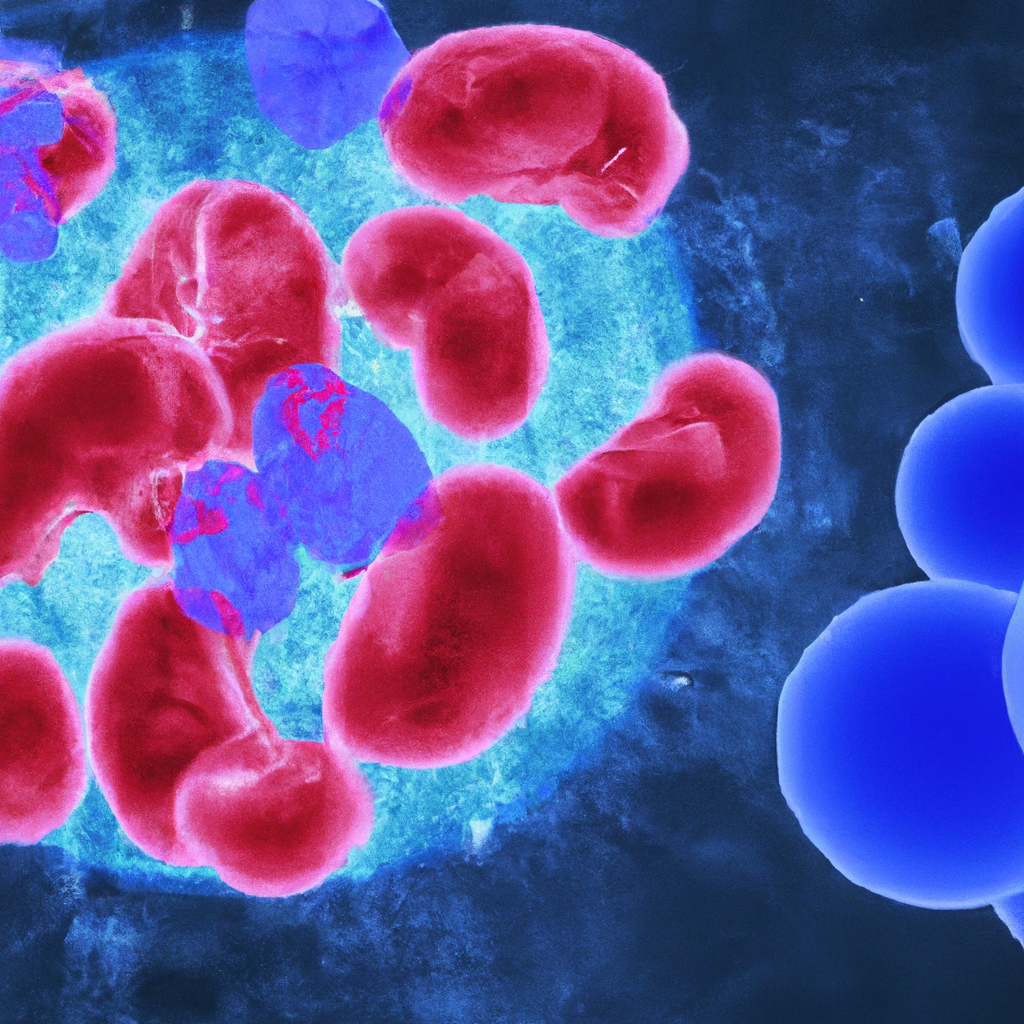Have you been wondering if there are any stem cell treatments available for chronic kidney diseases in Malaysia? In this article, we will explore this topic in depth and provide you with relevant information to satisfy your curiosity. As an expert in stem cell research, you can trust that the content presented here is comprehensive and informative. We will delve into the current state of stem cell treatments for chronic kidney diseases in Malaysia, discussing their availability, effectiveness, and potential benefits. So, if you’re seeking answers regarding this innovative approach to treating kidney diseases, you’ve come to the right place.

Overview of Chronic Kidney Diseases
Chronic Kidney Disease (CKD) refers to the gradual loss of kidney function over time. It is a progressive condition that can lead to kidney failure if left untreated. There are various types of CKD, including diabetic nephropathy, hypertensive nephropathy, and glomerulonephritis. Each type has its own underlying causes and mechanisms.
In Malaysia, CKD has become a significant public health concern. It is estimated that about 9.1% of the population in Malaysia is affected by CKD, making it a prevalent condition. The high prevalence can be attributed to factors such as the aging population, increasing rates of diabetes and hypertension, and lifestyle changes.
CKD can have a significant impact on the lives of patients. The disease can lead to complications such as anemia, bone disorders, and cardiovascular problems. It can also affect a person’s quality of life, causing fatigue, depression, and limitations in daily activities. Understanding and managing CKD is vital for improving the well-being of individuals living with the condition.
Understanding Stem Cell Therapy
Stem cell therapy holds promise as a potential treatment for various chronic diseases, including CKD. Stem cells are undifferentiated cells that have the ability to self-renew and differentiate into different types of specialized cells. They can be obtained from various sources, such as embryonic tissue, adult tissues, and induced pluripotent stem cells.
There are different types of stem cells used in therapy, including mesenchymal stem cells (MSCs), hematopoietic stem cells (HSCs), and induced pluripotent stem cells (iPSCs). MSCs have shown potential in regenerating damaged kidney tissues and promoting tissue repair. HSCs have been used in bone marrow transplants for the treatment of certain kidney diseases. iPSCs are generated from adult cells and can be reprogrammed to become any cell type, including kidney cells.
The efficacy and safety of stem cell therapy for CKD are still being studied. Although some studies have shown promising results in improving kidney function and reducing symptoms, more research is needed to establish its long-term effects and safety profile.
Current Treatment Options for Chronic Kidney Diseases
Pharmaceutical drugs are commonly prescribed to manage symptoms and slow the progression of CKD. These medications aim to control factors such as high blood pressure, proteinuria, and anemia. However, they do not offer a cure and may have limitations in terms of effectiveness and tolerability.
Dialysis is a renal replacement therapy used when kidney function declines to a critical level. It involves the use of a machine to remove waste products and excess fluid from the blood. Dialysis can be performed in two ways: hemodialysis, which uses a machine to filter the blood, and peritoneal dialysis, which uses the patient’s peritoneal membrane as a filter. While dialysis can help prolong the lives of patients with end-stage renal disease, it is not without complications and limitations.
Kidney transplant is considered the most effective treatment for end-stage renal disease. It involves the surgical transplantation of a healthy kidney from a living or deceased donor. Kidney transplant offers the potential for a better quality of life and long-term survival compared to dialysis. However, it is associated with the risk of organ rejection and requires lifelong immunosuppressive medication.
Research and Development of Stem Cell Treatments
In recent years, there have been significant advancements in stem cell research for kidney diseases. Scientists and researchers are exploring various strategies to harness the regenerative potential of stem cells for the treatment of CKD. These include direct injection of stem cells into the damaged kidneys, the use of scaffolds to promote tissue regeneration, and the modification of stem cells to enhance their therapeutic properties.
clinical trials and experimental studies are being conducted in Malaysia to evaluate the feasibility and safety of stem cell therapy for CKD. These studies aim to assess the potential benefits of stem cell treatments, such as improved kidney function, reduced inflammation, and increased tissue repair. Additionally, researchers are investigating the use of stem cells in combination with other therapies, such as growth factors and biomaterials, to enhance their therapeutic effects.
However, there are challenges and limitations in stem cell therapy research. One major challenge is ensuring the safety and effectiveness of stem cell treatments. Rigorous preclinical and clinical trials are necessary to establish the optimal therapeutic strategies and dosages. Ethical considerations, such as the use of embryonic stem cells and informed consent, also need to be addressed. Furthermore, the cost and scalability of stem cell therapies pose practical challenges that need to be overcome.

Available Stem Cell Treatments for Chronic Kidney Diseases in Malaysia
In Malaysia, there are regenerative medicine centers that offer stem cell therapy for CKD. These centers provide a range of treatments using various types of stem cells, including MSCs and iPSCs. The treatments are tailored to the individual needs of patients and may involve different administration routes, such as intravenous infusion or direct injection into the kidneys.
The success rates of stem cell therapy for CKD in Malaysia vary depending on factors such as the patient’s condition, the type of stem cells used, and the treatment protocol. Some patients have reported improvements in kidney function, reduced symptoms, and an enhanced quality of life. However, it is important to note that the outcomes of stem cell treatments can vary among individuals, and more research is needed to determine their long-term effects.
Testimonials from patients who have undergone stem cell therapy for CKD in Malaysia provide insights into their experiences and outcomes. These testimonials highlight the potential benefits of stem cell treatments, such as reduced reliance on medication, improved energy levels, and better overall well-being. However, it is essential to consult with healthcare professionals and make informed decisions when considering stem cell therapy.
Evaluating the Effectiveness of Stem Cell Therapy
Assessing the effectiveness of stem cell therapy for CKD involves various criteria. These include improvements in kidney function, reduction in proteinuria and inflammation, and improvement in quality of life measures. Long-term outcomes, such as the stability of kidney function and the need for additional treatments, are also important indicators of success.
Sustainability of stem cell therapy is another crucial aspect to consider. Long-term studies are needed to determine the durability of the therapeutic effects and whether additional treatments or interventions are required. Furthermore, comparing the outcomes of stem cell therapy with conventional treatment options, such as pharmaceutical drugs, dialysis, and kidney transplant, can provide insights into the relative effectiveness and benefits of each approach.

Cost and Accessibility of Stem Cell Treatments in Malaysia
The cost of stem cell therapy for CKD in Malaysia can vary depending on the specific treatment protocol, the type of stem cells used, and the clinic or center providing the therapy. Stem cell treatments are generally considered expensive due to the complexity of the procedures and the need for specialized facilities and expertise. It is important for patients to inquire about the cost and any potential financing options before undergoing stem cell therapy.
Accessibility of stem cell treatments in Malaysia may vary across different regions. Major cities and urban areas tend to have more regenerative medicine centers and facilities offering stem cell therapy. However, efforts are being made to improve access to stem cell treatments in rural areas through initiatives such as telemedicine and outreach programs. Patients in rural areas may need to travel to urban centers to access stem cell therapies, which can add to the overall cost and logistical challenges.
Expert Opinions on Stem Cell Therapy for Chronic Kidney Diseases
Renowned nephrologists and stem cell researchers in Malaysia have expressed their views on stem cell therapy for CKD. Some experts are cautiously optimistic about the potential of stem cell treatments in improving kidney function and reducing the burden of CKD. They highlight the need for more research and evidence-based approaches to ensure the safety and efficacy of stem cell therapies.
Controversies and debates surrounding stem cell therapy exist within the scientific community. Some concerns arise from the ethical considerations of using embryonic stem cells and the long-term effects of stem cell treatments. However, experts agree that continued research and clinical trials are crucial for determining the optimal use of stem cells in treating CKD.
The future potential and developments in stem cell therapy for CKD are promising. Ongoing research and technological advancements may lead to more refined therapeutic strategies and protocols. Collaboration between researchers, healthcare professionals, and policymakers is important for translating stem cell research into clinical applications and ensuring the availability of safe and effective treatments for CKD.

Legal and Ethical Considerations of Stem Cell Therapy
The use of stem cell therapies in Malaysia is governed by regulatory frameworks and guidelines to ensure patient safety. The National Stem Cell Guidelines, issued by the Ministry of Health, outline the requirements for the practice and use of stem cells in therapy. The guidelines cover aspects such as patient screening, informed consent, handling and storage of stem cells, and reporting adverse events.
Ethical concerns surrounding stem cell therapy for CKD include the use of embryonic stem cells and the potential for exploitation of vulnerable patients. The use of embryonic stem cells raises ethical questions related to the source of the cells and their destruction. To address these concerns, researchers are exploring alternative sources of stem cells, such as adult tissues and induced pluripotent stem cells.
Consumer awareness and protection are essential aspects of stem cell therapy. Patients considering stem cell treatments should be informed about the risks, benefits, and uncertainties associated with these therapies. They should also be aware of their rights as patients and have access to accurate and balanced information to make informed decisions.
Conclusion
In conclusion, stem cell therapy offers potential as a treatment option for chronic kidney diseases in Malaysia. Ongoing research and clinical trials are exploring the effectiveness and safety of stem cell treatments, with some promising results reported. Stem cell therapy should be considered in the context of available treatment options, such as pharmaceutical drugs, dialysis, and kidney transplant.
The accessibility and affordability of stem cell treatments in Malaysia may pose challenges, particularly in rural areas. Patient awareness, understanding, and involvement in the decision-making process are essential. Collaborative efforts among researchers, healthcare professionals, and policymakers are crucial for advancing stem cell research and ensuring the development of safe and effective therapies for CKD.





